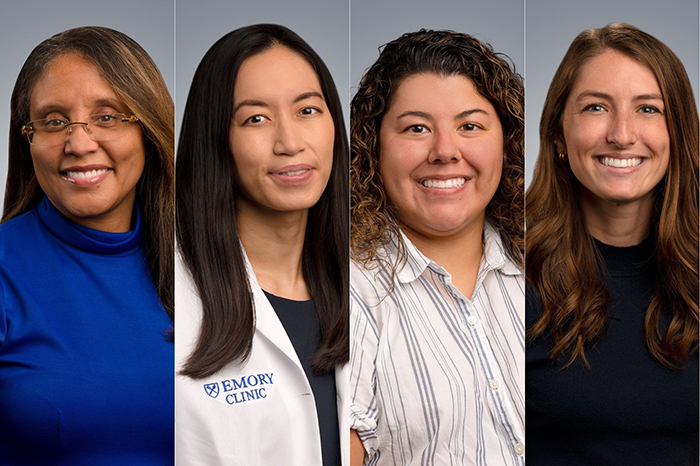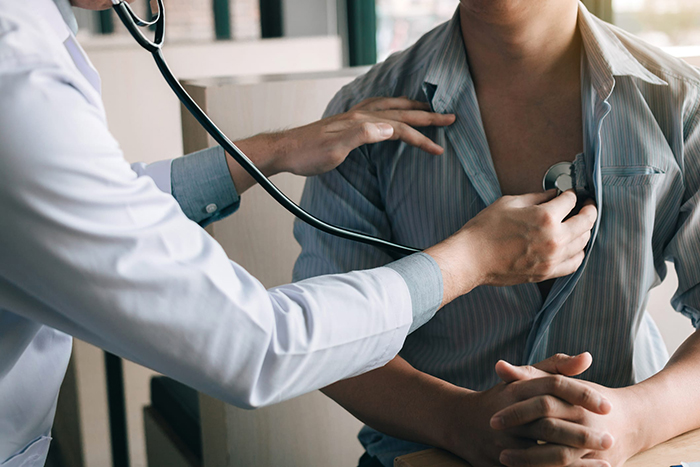When should you talk to your doctor?
Echols: The most common symptoms to indicate if your sugar is exceedingly high are that you may have dry mouth, and excessive thirst and urination. You may even taste sugar. For example, you may just be eating something like broccoli, which is not sweet at all, but it can taste very sugary. Sometimes, you may even smell sugar in your urine, which means that the blood sugar is extremely high. Those are the main symptoms that people have. However, it is also recommended to ask patients if they have any family history of type 2 diabetes or if anybody in their family is diabetic. If the answer is yes, then we do further tests to see if they may be pre-diabetic.
How is diabetes diagnosed?
Echols: Fasting glucose is measured for the diagnosis. This means you will fast – nothing to eat or drink, except water with nothing added – for at least six to eight hours, and then we check your sugar. Normal glucose readings are 70 to 90. If my patients come to me with high readings, I recommend they follow up in six months for Hemoglobin A1C, which is a simple blood test that measures average blood sugar over a two-and-a-half to three-month period and lets us know where they fall on a spectrum. Normal would be considered anything under a 5.7, and abnormal, or prediabetes in this case, would be considered 5.7 and higher. Anything 6.5 and above is diabetes. After an A1C, I recommend getting a second fasting glucose test and then talking to your doctor or your provider about your elevated numbers to see what they recommend you do next.
What diet is recommended for patients with diabetes?
Echols: Typically, if a person has one parent that has type 2 diabetes, there is a 50% chance they become type 2 themselves. But, of course, lifestyle modifications can help with this. I always tell my patients that diet is inherited as well. Similarly, if a person has both parents diagnosed with type 2 diabetes, their chances increase to 80%. I recommend visiting diabetes.org, the official website of the American Diabetes Association, for healthy cooking recipes. I always suggest reduced carbs, reduced saturated fat, and an anti-inflammatory diet. Personally speaking, if there is one specific diet that encompasses all those elements, it would be the Mediterranean diet. If you are not partial to some specific foods in the Mediterranean diet, consume culturally relevant foods that fit within the aforementioned guidelines. Oldways is a good source for these guidelines.
What else does diabetes affect?
Echols: Diabetes complications can often cause impaired vision. Retinopathy, which is when the blood vessels in the retina are damaged by those high-circulating sugars, is the most common eye condition for diabetics. There is also a link between elevated eye pressure and blood sugar, where glaucoma – damage to the optic nerve – can occur. Also, diabetes is a cardiovascular disease equivalent, which means there is a possibility for every organ system in the body to be affected—from the digestive system to the kidneys, and even the sexual organs of both men and women.
What is dialysis and how can it be prevented?
Echols: Over time, blood vessels are damaged because of the high-circulating blood sugars, which can eventually lead a diabetic to be on dialysis. You can either never be on dialysis at all, or you can get there very quickly depending on how well you manage your blood sugar level. Good management of blood sugar is a good way to prevent having to get on dialysis. Being responsible and doing what you can to manage your blood sugar level, and just being consistent with knowing the right way to eat and treat your body, can sometimes prevent you from getting to the point where dialysis is needed. And make sure you keep regularly scheduled follow-up visits with your trusted clinician.
What is integrative medicine?
Echols: Integrative medicine is a combination of using prescription drugs to help manage conditions and getting a better understanding of supplements and their appropriate use to treat medical conditions. My interest in integrative medicine started because a lot of my patients were coming in to let me know that they did not want just medication, they also wanted to use supplements. So, I let them know the benefits of prescription drugs but still respected the fact that they were looking for something other than a pharmaceutical drug to help manage their conditions.




